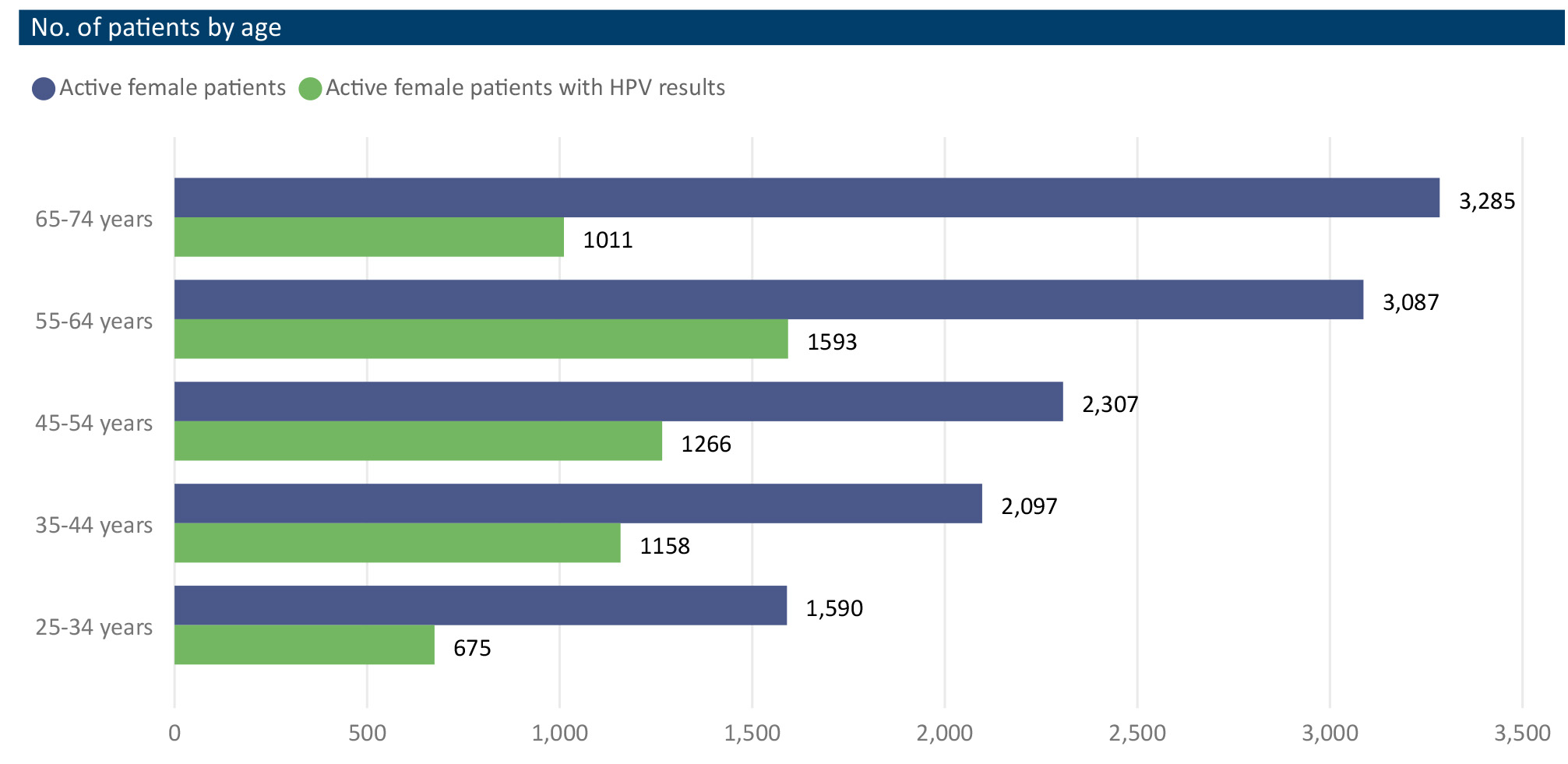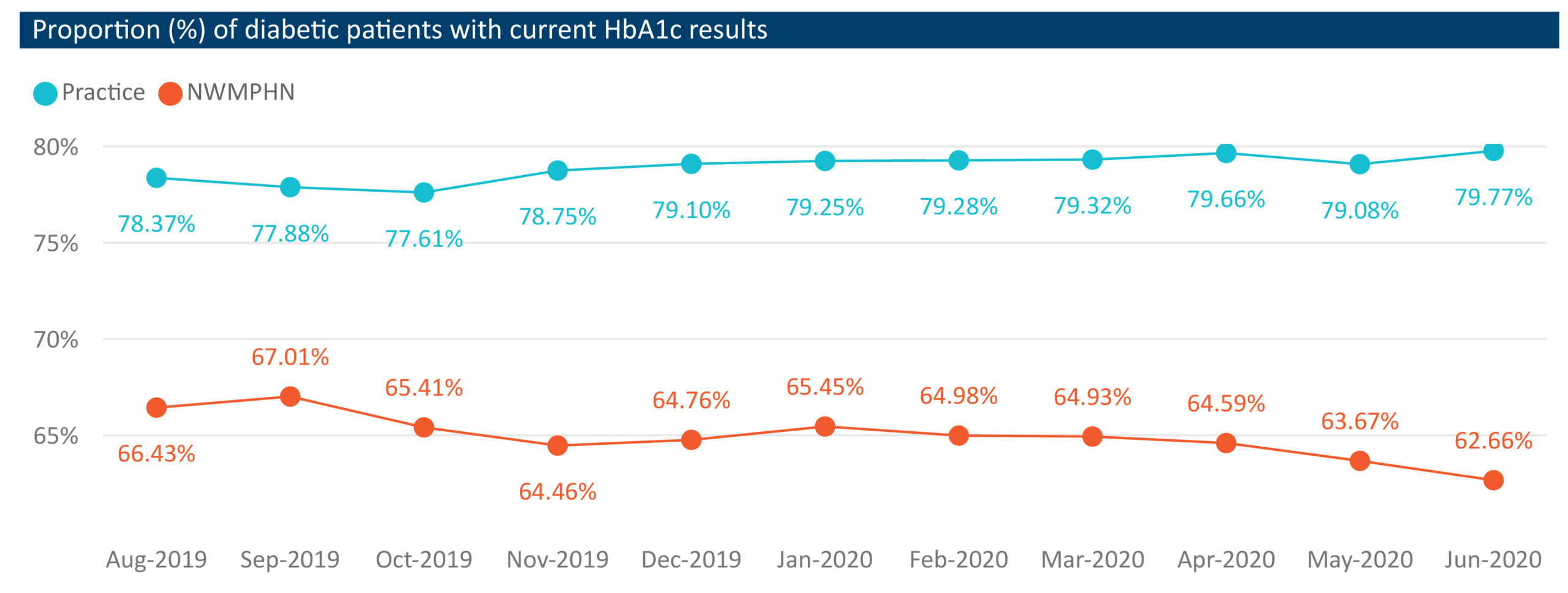
By the Primary Health Care Improvement Team, North Western Melbourne Primary Health Network.
General practices across Australia have embarked on a new quality improvement journey, with the implementation of the Practice Incentives Program Quality Improvement (PIP QI) Incentive.
Today, North Western Melbourne Primary Health Network (NWMPHN) is pleased to announce that general practices will be receiving their Practice Data Quality Benchmark reports from July 2020. The reports will be a valuable tool to help practices to track their progress and provide better care.
Background
The PIP QI Incentive was established to encourage practices to participate in quality improvement and to improve patient outcomes through the delivery of high-quality care.
In partnership with their Primary Health Network (PHN), practices may choose any area of improvement informed by their clinical information system. By submitting the PIP Eligible Data Set to their PHN, eligible practices can receive a maximum payment of $12,500 per quarter, based on $5.00 per Standardised Whole Patient Equivalent, per year.
To support practices to continue to provide face-face consultations during the pandemic, the Commonwealth Department of Health temporarily doubled the schedule payment amount for the two quarters between February and July 2020.
Our Practice Data Quality Benchmark Reports were developed in consultation with the NWMPHN General Practice Advisory Group and Dr Jeannie Knapp, GP and NWMPHN Primary Health Care Improvement GP Adviser.
What is covered in the reports?
The reports will give practices a visual overview of their population demographics and progress against the 10 PIP QI data measures:
- Proportion of patients with diabetes with a current HbA1c result
- Proportion of patients with a smoking status
- Proportion of patients with a weight classification
- Proportion of patients aged 65 and over who were immunised against influenza
- Proportion of patients with diabetes who were immunised against influenza
- Proportion of patients with COPD who were immunised against influenza
- Proportion of patients with an alcohol consumption status
- Proportion of patients with the necessary risk factors assessed to enable CVD assessment
- Proportion of female patients with an up-to-date cervical screening
- Proportion of patients with diabetes with a blood pressure result
These reports will also provide insight into how practices are tracking against the NWMPHN region average.
Our PIP QI report has two sections. The first section provides practices an overview of their population demographics, including the breakdown of their active patients by sex and ethnicity as seen in the graphs below:

The second section provides a detailed insight into how the practice is tracking against each of the 10 PIP QI Measures by quarter and how the practice is tracking against the NWMPHN region average for that measure.
For example, the graph below shows the total number of active female patients aged 25 to 74 with a HPV result in the last five years:

The graph below shows the proportion of diabetic patients with current HbA1c results at the practice compared to the monthly NWMPHN region average for the same measure:

What support is available?
We will be providing a range of support options for practices to assist your practice to get the most out of these reports. Available support includes:
- Navigating PIP QI Reports with Dr Jeannine Knapp (NWMPHN GP Adviser)
- General practice visits for the whole practice team
- Virtual drop in sessions
- Over the phone or email support with your NWMPHN relationship manager
PIP QI reports will be distributed directly to general practice by our relationship managers from 1 July 2020. If you have any questions please contact the NWMPHN Primary Health Care Improvement team on (03) 9347 1188 or primarycare@nwmphn.org.au
PIP QI tips and tricks
- Reach out to your PHN relationship manager by emailing primarycare@nwmphn.org.au
- Brush up on your CAT4 and Topbar skills
- Use our Quality Improvement toolkit
- Use Plan, Do, Study, Act templates to document your quality improvement activities. We have a template you can download (.docx).
- Participate in a structured quality improvement program
- Register to attend an upcoming education event
- Sign up to our General Practice Newsletter by emailing primarycare@nwmphn.org.au




